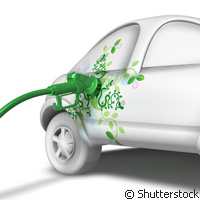Biofuels boost from European researchers
Despite being an attractive energy source in both environmental and economic terms, biofuels can have a corrosive effect on engines, a fact that has caused many European consumers to lose confidence in this form of clean energy. But now a consortium of researchers from the Czech Republic, Germany, Spain, Finland and the United Kingdom has come up with a solution that could eliminate this problem and restore faith in biofuels. Biofuels are derived from plants and naturally absorb CO2, making them far cleaner and more widely available than oil sands for example. However they contain a high amount of water and oxygen which has a corrosive effect on engines. Hybrid car fuels such as the E10, which is a mixture of 10 % ethanol and 90 % gasoline, have quickly become unpopular in parts of Europe. A recent poll showed that around 70 % of German motorists are suspicious of bioethanol and believe that it is damaging to car engines. So far the transport industry has responded to this problem by diluting ethanol in regular fuel and adapting the gasoline obtained to existing engine standards. But the team, who came together as part of a EUREKA research cluster, has taken a different approach by changing not the fuel mixture but the engine itself. EUREKA is a platform for research and development (R&D)-performing entrepreneurs in Europe and is made up of 39 partners including the European Commission. EUREKA Clusters are long-term, strategic public private partnerships with the aim of developing generic technologies of key importance to European competitiveness. Many leading European companies participate in EUREKA Clusters. The team set out to redesign engines so that they could adapt to non-conventional fuels. They tackled the challenge by rethinking each component's finishing, as opposed to modifying their traditional structures. 'The result is not only a new breed of engines adapted to biofuels, the engines themselves are less noisy and longer lasting,' says project leader Dr Amaya Igartua, a senior scientist at the Spanish research institute Tekniker-IK4. 'The issue of the quality of blended fuels available, due to their tendency to absorb water, has had a damaging effect on the market. We need to go step by step. The main focus of the project was on the improvement of a technology that is already available, adapting it to the types of fuel blends that are the most commonly used, from E10 to E30.' However Iñaki Aguinaga, from Guascor-Dresser Rand, one of the main industrial partners in the project warns that the European market might not yet be ready for the introduction of this new technology, which his why during the project they tested out their findings in markets outside Europe, notably in Brazil and Venezuela. 'We wanted to sell in parts of the world where, in the consumer's eyes, biofuels are a viable solution. What we have learned in this project, how to tackle the corrosive effect of biofuel, could equally be applied to the exploitation of gas or biomass, which there are also issues with corrosion.' One perceived disadvantage of biofuels is how the growing demand for biofuel raw materials can in turn increase global food prices, but the EUREKA team states that a new generation of biofuels that don't use food products as their main component are on the way. 'It was important for us to consider what are called 'second generation' biofuels and biofuels based on algae, as they represent a very promising source of energy for the future,' comments Dr Igartua. This project paves the way for future research into the introduction of fuel blends with a higher concentration of ethanol.For more information, please visit:EUREKA:http://www.eurekanetwork.org/
Countries
Czechia, Germany, Finland, United Kingdom



